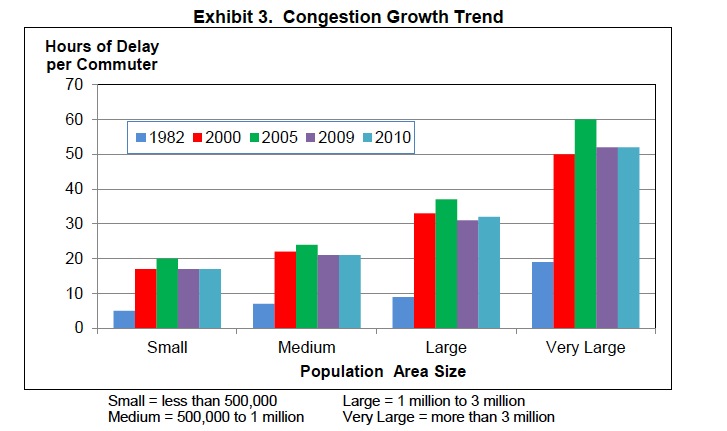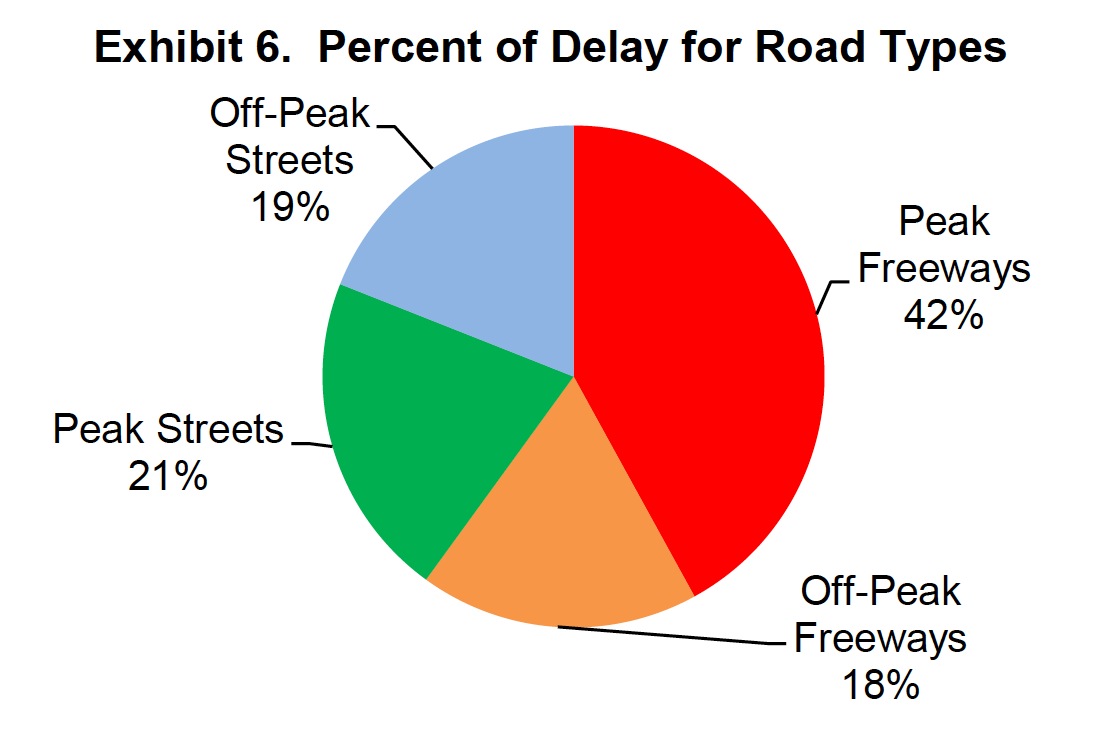TEXAS TRANSPORTATION INSTITUTE
Introduction
Congestion is a significant problem in America’s 439 urban areas. And, although readers and policy makers may have been distracted by the economy-based congestion reductions in the last few years, the 2010 data indicate the problem will not go away by itself – action is needed.
- First, the problem is very large. In 2010, congestion caused urban Americans to travel 4.8 billion hours more and to purchase an extra 1.9 billion gallons of fuel for a congestion cost of $101 billion. (see Exhibit 1)
- Second, 2008 was the best year for congestion in recent times (see Exhibit 2); congestion was worse in 2009 and 2010.
- Third, there is only a short-term cause for celebration. Prior to the economy slowing, just 4 years ago, congestion levels were much higher than a decade ago; these conditions will return with a strengthening economy.
There are many ways to address congestion problems; the data show that these are not being pursued aggressively enough. The most effective strategy is one where agency actions are complemented by efforts of businesses, manufacturers, commuters and travelers. There is no rigid prescription for the “best way”—each region must identify the projects, programs and policies that achieve goals, solve problems and capitalize on opportunities.
Download the full version (PDF): 2011 Urban Mobility Report
About Texas Transportation Institute
tti.tamu.edu
“The Texas Transportation Institute (TTI), a member of The Texas A&M University System, seeks solutions to the problems and challenges facing all modes of transportation. TTI, which celebrated its 60th anniversary in 2010, works on over 600 research projects with over 200 sponsors annually at all levels of government and the private sector. TTI is recognized as one of the finest higher education-affiliated transportation research agencies in the nation and helps prepare students for transportation careers.”








 RSS Feed
RSS Feed